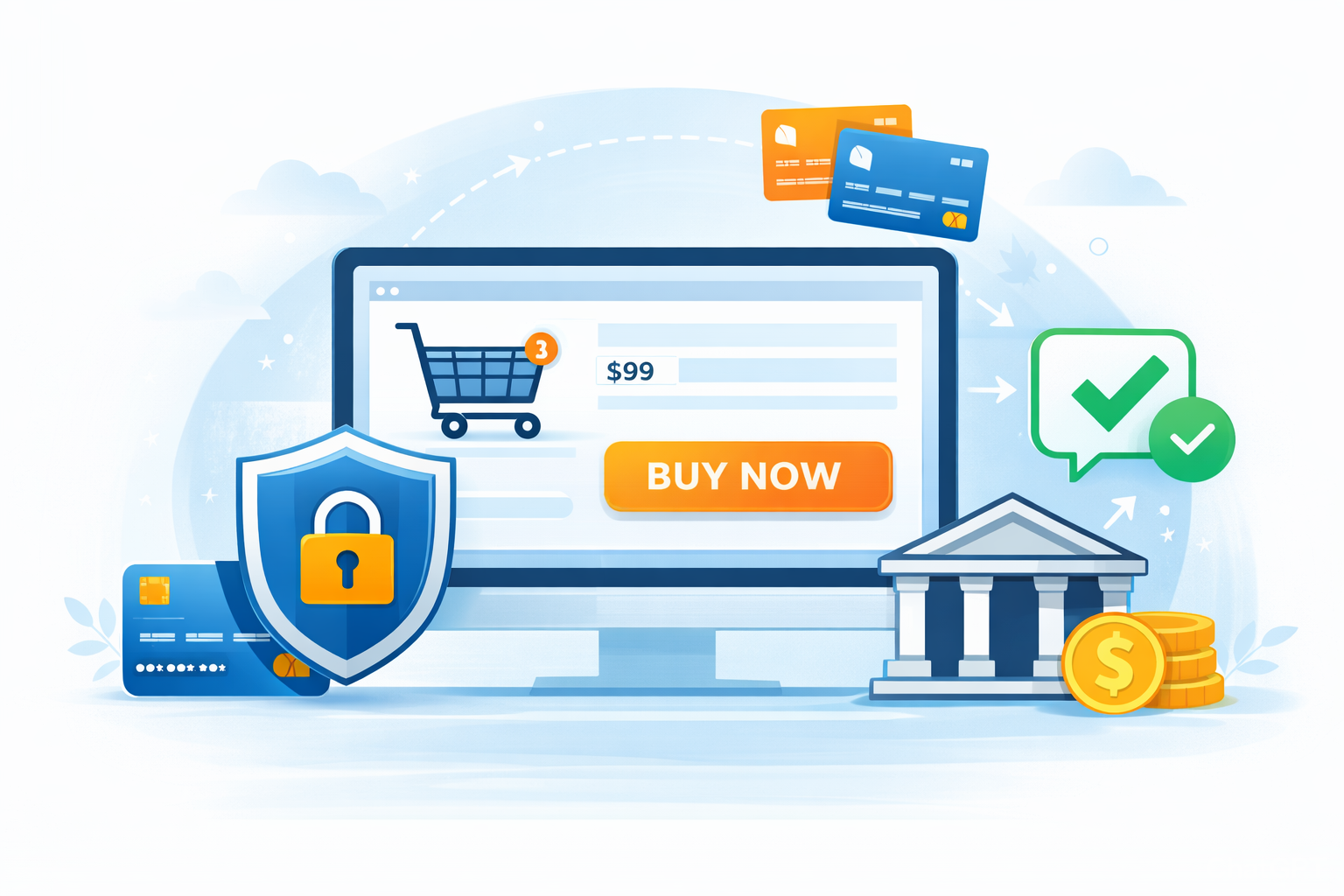Try Zipchat in Action!
Enter your store URL to see how Zipchat would behave.

In today's digital age, ecommerce has become a powerful force in the business world. With the rise of online shopping, it has become essential for businesses to leverage various marketing strategies to stand out from the competition. One such strategy that has gained significant traction is influencer marketing. In this article, we will explore the role of influencers in driving ecommerce success and provide insights on how to harness their power effectively.
The Rise of Ecommerce Influencers
Influencer marketing has revolutionized the way brands connect with their target audience. But what exactly is influencer marketing? In simple terms, it involves collaborating with individuals who have a significant following and impact on social media to promote products or services. By leveraging the trust and influence they have built, businesses can tap into a new customer base and boost brand awareness.
What is Influencer Marketing?
Influencer marketing involves partnering with influencers, who are individuals that have cultivated a loyal following on various social media platforms. These influencers may be bloggers, vloggers, or social media personalities who have established credibility in a specific niche.
Benefits of Using Influencers in Ecommerce
The benefits of leveraging influencers in ecommerce are numerous. Firstly, influencers have a dedicated and engaged audience who trust their recommendations. This translates into higher conversion rates and increased sales for businesses. Secondly, influencers help businesses reach a wider audience by tapping into their existing network. Thirdly, influencer marketing is cost-effective compared to traditional advertising channels, making it an attractive option for businesses of all sizes. Lastly, collaborating with influencers allows brands to capitalize on their creativity and unique storytelling skills, resulting in authentic and relatable content.
Current Trends in Influencer Engagement
The landscape of influencer marketing continues to evolve, and staying up to date with the latest trends is essential for ecommerce success. One prominent trend is the rise of micro-influencers. These influencers have smaller but highly engaged audiences, leading to higher levels of trust and authenticity. Another trend is the shift towards long-term partnerships, where brands collaborate with influencers on multiple campaigns over an extended period. This approach fosters a deeper connection between the influencer and the brand, increasing the effectiveness of marketing efforts.
Furthermore, another emerging trend in influencer engagement is the use of user-generated content. Brands are now encouraging their customers to create content featuring their products and services, and then sharing that content on social media platforms. This strategy not only helps in building a sense of community around the brand but also allows for a more diverse range of content that resonates with different segments of the target audience.
In addition, influencer marketing is becoming more data-driven. Brands are now using advanced analytics tools to measure the impact of influencer campaigns, track engagement rates, and analyze the return on investment. This data-driven approach enables businesses to make informed decisions about their influencer partnerships, ensuring that they are maximizing their marketing efforts and achieving their desired outcomes.
Developing an Influencer Marketing Strategy
Creating a successful influencer marketing strategy requires careful planning and execution. Let's explore the key steps involved in developing an effective strategy.
But before we dive into the details, let's take a moment to understand the power of influencer marketing. In today's digital age, consumers are bombarded with advertisements everywhere they turn. Traditional forms of advertising are losing their impact, and consumers are becoming more skeptical of brand messages. This is where influencer marketing comes in.
Influencer marketing leverages the trust and credibility that influencers have built with their audience. By partnering with influencers who align with your brand values, you can tap into their engaged and loyal following, and effectively promote your products or services.
Identifying the Right Influencers for Your Brand
The first step in crafting your influencer marketing strategy is to identify the influencers who align with your brand values and target audience. Take the time to research and analyze potential influencers to ensure they genuinely resonate with your target demographic. It's vital to consider factors such as follower demographics, engagement rates, and content quality when selecting influencers.
But it's not just about the numbers. Authenticity is key in influencer marketing. You want to partner with influencers who genuinely believe in your brand and can authentically promote it to their audience. Look for influencers who have a genuine passion for your industry or product, as their enthusiasm will shine through in their content.
Crafting Effective Influencer Partnerships
Once you have identified potential influencers, the next step is to establish meaningful partnerships. Clear communication and mutual collaboration are key to building successful relationships with influencers. Determine the campaign objectives, desired content formats, and expected deliverables upfront. Encourage influencer creativity while ensuring the content aligns with your brand guidelines and messaging.
Remember, influencer marketing is a two-way street. It's not just about what the influencer can do for your brand, but also what your brand can do for the influencer. Offer value to the influencer, whether it's through monetary compensation, exclusive access to your products or services, or other perks. Building a mutually beneficial partnership will result in more authentic and impactful content.
Zipchat AI's Role in Enhancing Influencer Strategies
One tool that can greatly enhance your influencer strategies is Zipchat AI. This AI-powered platform provides advanced data analytics and performance tracking for influencer campaigns. With Zipchat AI, you gain valuable insights into important metrics such as engagement rates, reach, and conversion rates. This data allows you to measure the effectiveness of each campaign and make data-driven decisions for future collaborations.
But Zipchat AI goes beyond just data analysis. It also offers features such as audience segmentation and sentiment analysis, allowing you to better understand your target audience and tailor your influencer campaigns accordingly. With Zipchat AI, you can optimize your influencer marketing strategy and maximize your return on investment.
Best Platforms for Ecommerce Influencers
While influencers can be found on various social media platforms, certain platforms stand out for their effectiveness in the ecommerce space. Let's take a closer look at the top social media platforms for influencer marketing.
Overview of Top Social Media Platforms
Instagram, YouTube, and TikTok are some of the most popular platforms for influencer marketing. Instagram offers a visually appealing platform for influencers to showcase products, while YouTube allows for in-depth video content creation. TikTok, with its short-form video format, has become the go-to platform for reaching younger audiences.
LinkedIn is also emerging as a powerful platform for B2B influencer marketing. With its professional networking focus, LinkedIn provides a unique opportunity for influencers to connect with businesses and decision-makers in a more formal setting. This platform is ideal for influencers looking to promote B2B products or services.
Comparing Engagement on Different Platforms
When selecting the platforms to focus on, it's essential to consider the engagement levels each platform offers. Instagram, for example, boasts high engagement rates, making it a preferred choice for influencer marketing. On the other hand, YouTube offers longer-lasting content that can reach audiences over an extended period.
Twitter, known for its real-time updates and conversational nature, is another platform worth considering for influencer marketing. With its trending topics and hashtag challenges, Twitter allows influencers to join relevant conversations and increase their visibility among a diverse audience.
Why Instagram is the Influencer Hub
Of all the social media platforms, Instagram has emerged as the influencer hub. Its visually-centric nature and easy-to-consume content make it an ideal platform for influencers to connect with their audience. Moreover, Instagram's features like the "Swipe Up" option and shoppable posts make it easier for influencers to drive traffic and sales directly to ecommerce websites.
Pinterest is another platform gaining traction in the influencer marketing landscape. With its focus on visual discovery and product recommendations, Pinterest offers influencers a unique space to showcase curated collections and drive traffic to ecommerce sites. Influencers can create inspiring boards that resonate with their audience and drive purchase intent effectively.
Measuring the Impact of Influencer Campaigns
Measuring the impact of influencer campaigns is crucial for optimizing future strategies and maximizing ROI. Let's explore the key aspects of measuring influencer campaign success.
In today's digital landscape, where social media plays a significant role in shaping consumer behavior, understanding the impact of influencer campaigns is more important than ever. Beyond just looking at surface-level metrics, delving deeper into the data can unveil valuable insights that can shape the direction of your marketing efforts.
Key Performance Indicators (KPIs) to Track
Determining the right Key Performance Indicators (KPIs) is vital to evaluate the success of influencer campaigns. Metrics such as engagement rates, website traffic, conversion rates, and return on investment (ROI) are crucial in understanding the effectiveness of your influencer marketing efforts.
Engagement rates provide insights into how well your audience is interacting with the influencer's content, while website traffic and conversion rates indicate the impact on your bottom line. Calculating the ROI helps in determining the profitability of your campaigns and justifying the investment in influencer partnerships.
Tools for Monitoring Influencer Effectiveness
Various tools can assist in monitoring and analyzing the effectiveness of influencer campaigns. Zipchat AI, for example, offers comprehensive tracking and reporting features. Additionally, social media analytics tools like Sprout Social and Hootsuite can provide valuable insights into engagement levels, follower growth, and content performance.
These tools not only track the performance of individual influencers but also provide a holistic view of your overall campaign effectiveness. By leveraging these tools, marketers can gain a deeper understanding of their target audience's preferences and behaviors, allowing for more targeted and impactful influencer collaborations.
Adjusting Strategies Based on Data Insights
Regularly reviewing the data insights gathered from influencer campaigns is essential for refining your strategies. Analyze what worked and what didn't, and make adjustments accordingly. Experimenting with different influencers, content formats, and campaign objectives can help optimize your overall influencer marketing strategy.
By staying agile and responsive to the data, brands can continuously improve their influencer campaigns, ensuring they stay relevant and effective in a rapidly evolving digital landscape. Remember, the key to success lies not just in the execution of influencer campaigns but in the strategic analysis and adaptation based on real-time insights.
Legal and Ethical Considerations
When engaging in influencer marketing, it's important to adhere to legal and ethical guidelines. Let's explore some key considerations.
Understanding Endorsement Regulations
Endorsement regulations vary by country, and it's crucial to familiarize yourself with the specific guidelines applicable to your region. In the United States, for example, the Federal Trade Commission (FTC) requires influencers to disclose their relationships with brands explicitly. Transparency in influencer partnerships is essential to maintain trust with the audience.
Ethical Practices in Influencer Partnerships
Ethics play an integral role in influencer partnerships. Work with influencers who align with your brand values and ensure they adhere to ethical practices. Avoid tactics such as buying fake followers or engaging in dishonest practices to artificially boost metrics. Authenticity and integrity are key in maintaining a positive reputation.
Maintaining Transparency with Audiences
Transparency is crucial in influencer marketing. Clearly communicating any sponsored partnerships or collaborations ensures transparency with your audience. Influencers should disclose their relationships with brands in a prominent and easily understandable manner.
FAQ
How do you ensure an influencer's audience aligns with your brand?
Ensuring an influencer's audience aligns with your brand involves thorough research and analysis. Study the influencer's content and engagement to gauge whether their audience matches your target demographic and shares similar interests. Look for influencers who have a genuine connection with their audience and create content that resonates with your brand values.
What are some common mistakes in influencer marketing and how to avoid them?
One common mistake in influencer marketing is solely focusing on follower count instead of engagement. A high follower count doesn't always translate to high engagement or conversions. It's essential to analyze engagement rates and the quality of an influencer's audience to ensure alignment with your brand. Additionally, maintaining open and clear communication with influencers, setting clear goals, and providing proper guidelines are vital to avoid misunderstandings or misrepresentations.
How does Zipchat AI facilitate better influencer campaign management?
Zipchat AI serves as a comprehensive platform for better influencer campaign management. Its advanced analytics and reporting features provide valuable insights into campaign performance, allowing businesses to optimize strategies for maximum impact. With Zipchat AI, businesses can track essential metrics, monitor influencer effectiveness, and make data-driven decisions for future campaigns.
Can small ecommerce brands benefit from influencer marketing?
Absolutely! Influencer marketing is not limited to large brands or corporations. Small ecommerce brands can leverage influencers to increase brand awareness, reach new audiences, and drive sales. The key lies in identifying relevant micro-influencers who have a dedicated following that aligns with your target market. By collaborating with influencers who have a passion for your brand, small ecommerce businesses can effectively engage with their target audience and enhance their overall marketing efforts.
In conclusion, influencer marketing offers ecommerce businesses a powerful avenue to connect with their target audience and drive success. By leveraging influencers' authenticity, creativity, and reach, brands can amplify their marketing efforts and achieve tangible results. Through careful planning, partnership cultivation, and data-driven strategies, businesses can unleash the full potential of influencer marketing and thrive in the competitive ecommerce landscape.
Take Your Ecommerce Strategy to the Next Level with Zipchat AI
Ready to transform your ecommerce experience and skyrocket your sales? With Zipchat AI, you can harness the power of the most advanced AI chatbot designed specifically for ecommerce. Engage your customers like never before, boost your conversion rates by an average of 13.4%, and streamline your support with proactive interactions. Don't miss out on the opportunity to elevate your business. Start your 7-Day Free Trial today and witness the difference Zipchat AI can make!








